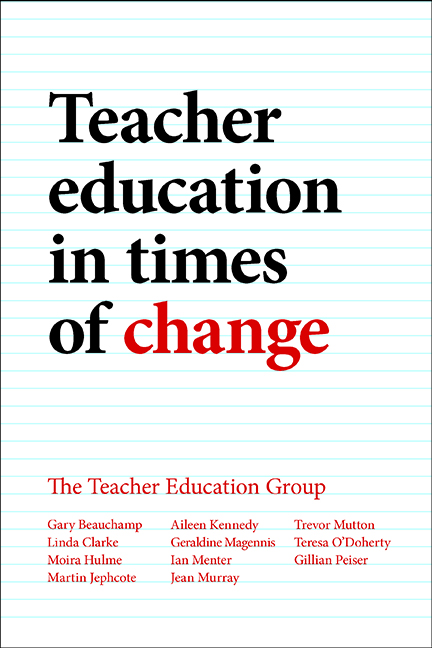Book contents
six - Teacher education in Scotland: consensus politics and ‘the Scottish policy style’
Published online by Cambridge University Press: 23 August 2022
Summary
Introduction: teacher education as public policy
In order to understand teacher education policy in Scotland, it is necessary to set the wider public policy context in which teacher education sits. The first part of this chapter does that, before going on to look at teacher education as a policy field in itself. Against this background we then problematise the specifics of teacher education policy in the Scottish context, which includes an exploration of the policy community itself, processes of policy deliberation and resulting policy instruments. Our intention is not to produce a chronology of teacher education policy in Scotland – that can be found elsewhere (eg, Hulme and Menter, 2013) – but rather to consider how teacher education policy functions as a part of wider public policy making in Scotland.
Scotland has had separate education legislation from the rest of the United Kingdom (UK) since the ‘Scottish Office’ was first established in 1885. However, public policy in Scotland is now legislated through the Scottish Government, education being one of its devolved functions (alongside health, justice, rural affairs, housing and transport). Devolution and the (re-)establishment of the Scottish Parliament in 1999 promised new ways of working – promoting access, consultation and transparency. While the extent to which these early aspirations have been met is still debatable, the sentiment reflects the perceived will of the Scottish people and, in theory, the electoral system in Scotland does allow for this kind of approach to governance. The Scottish Government is elected through a system of proportional representation, meaning greater likelihood of a coalition government than should be the case under a ‘first past the post’ system (still the voting system for the UK government). Proportional representation therefore supports the greater likelihood of a consensus government; one that engages in bargaining and compromise, both within the confines of parliamentary engagement and with wider stakeholder groups. This is important in the context of teacher education policy, as consensus politics are evident in the minutiae of policy development and enactment, as will be illustrated.
However, despite the greater likelihood of a coalition government under the proportional representation system, a Scottish National Party (SNP)-led majority government was returned in 2011, following an SNP-led minority government in the 2007 General Election.
- Type
- Chapter
- Information
- Teacher Education in Times of ChangeResponding to challenges across the UK and Ireland, pp. 91 - 108Publisher: Bristol University PressPrint publication year: 2015

